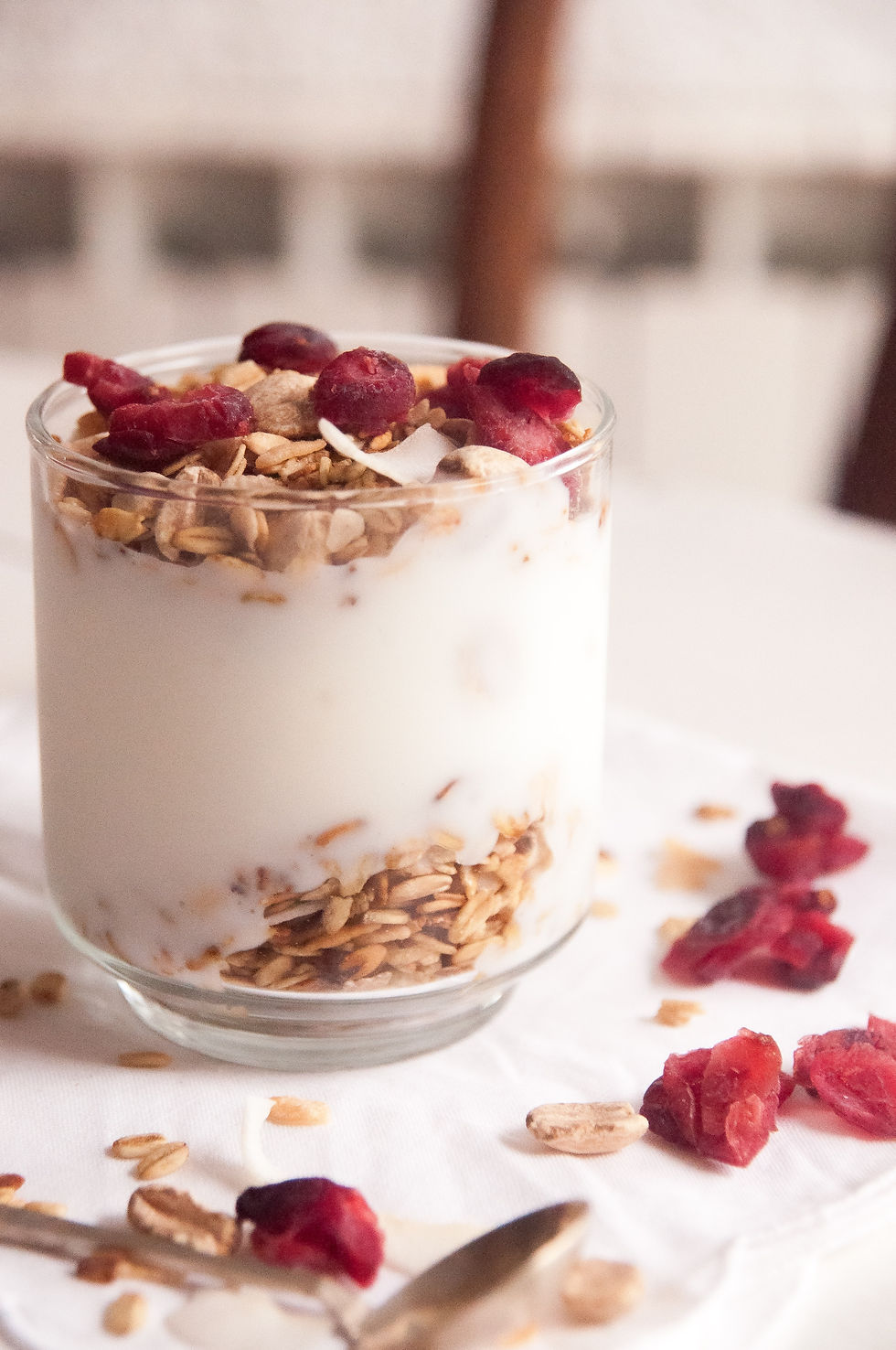Gut Health 101: The Link Between Inflammation, Microbes and Energy
- yasminlewis9
- Sep 26, 2025
- 2 min read
Gut health has exploded in popularity — but beyond the hype, science shows that your gut microbiome (the trillions of microbes in your digestive tract) affects almost every system in your body. From inflammation to immunity to energy regulation, your gut is central to wellbeing.
So what exactly is the connection, and how can you support it in an evidence-based way?

The Gut-Inflammation-Energy Connection
Dysbiosis and Inflammation
Dysbiosis = imbalance of good and bad gut bacteria.
Leads to a “leaky gut,” where bacterial fragments escape into the bloodstream, triggering inflammation (Cani et al., 2007).
Chronic Inflammation Drains Energy
When the immune system is constantly activated, the body diverts resources to fight “threats” — leaving less energy for daily life (Nagata et al., 2019).
Gut and Metabolism
Gut bacteria produce short-chain fatty acids (SCFAs), which regulate blood sugar, appetite, and energy (Koh et al., 2016).
A healthy gut = steady energy. A disrupted gut = fatigue, crashes, brain fog.
Evidence-Backed Habits for Gut Health
1. Fibre First
Fibre feeds good bacteria, which then produce SCFAs (Valdes et al., 2018).
Whole grains, beans, fruit, and veg are the best sources.
Practical tip: Aim for 25–30g of fibre daily — start slow if you’re not used to it.
2. Eat a Variety of Plants
More plant diversity = more microbial diversity.
Study: People eating 30+ plant types per week had significantly more diverse microbiomes than those eating <10 (McDonald et al., 2018).
Practical tip: Count your “plant points” each week.
3. Fermented Foods
Yogurt, kefir, sauerkraut, kimchi, miso, kombucha add live bacteria.
Study: Fermented food consumption increased microbial diversity and reduced inflammatory markers (Zmora et al., 2018).

A delicious and healthy parfait featuring creamy yogurt layered with crunchy granola and topped with vibrant dried cranberries, perfect for a nutritious breakfast or snack.
4. Limit Ultra-Processed Foods
High sugar, additives, and emulsifiers harm microbial balance (Sonnenburg & Sonnenburg, 2019).
Practical tip: Swap processed snacks for nuts, fruit, or hummus + veg.
5. Lifestyle Matters Too
Stress and poor sleep can disrupt microbiota (Benedict et al., 2012).
Regular movement boosts gut health.
When Gut Health Goes Wrong
Poor gut health has been linked with:
IBS and digestive discomfort
Autoimmune conditions
Chronic fatigue
Mood disorders like depression (via the gut-brain axis)
Key Takeaway
Gut health is more than digestion — it’s about inflammation, energy, and resilience. Focusing on fibre, plant diversity, fermented foods, and lifestyle habits provides the strongest evidence-based foundation.
__________________________________________________________________________________
References Explained
Valdes et al. (2018): Fibre improves microbiome diversity and lowers inflammation.
Sonnenburg & Sonnenburg (2019): Low-fibre diets reduce microbiome diversity.
Zmora et al. (2018): Fermented foods increase diversity.
Nagata et al. (2019): Gut dysbiosis linked with chronic fatigue.
Disclaimer: This article is for informational purposes only and is not a substitute for professional medical advice, diagnosis, or treatment. Always seek the guidance of a qualified healthcare provider before making changes to your diet, lifestyle, or treatment plan.



Comments